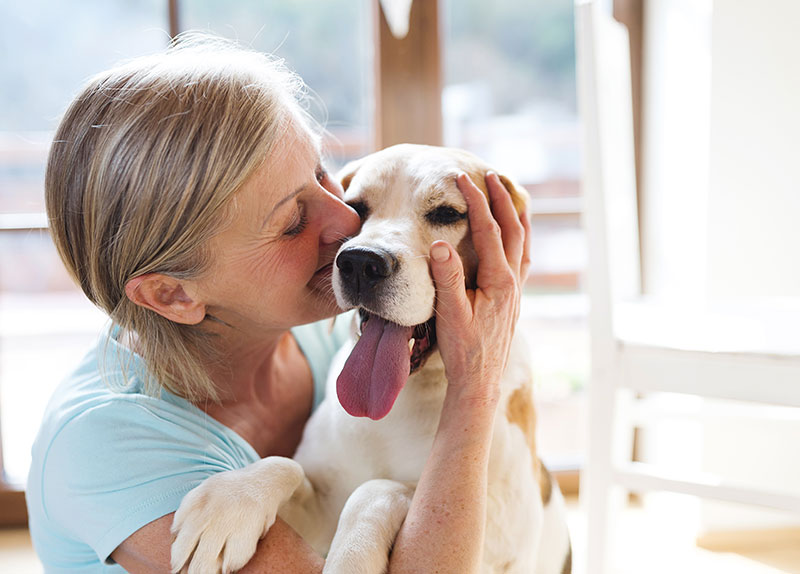
How to Tell When Your Pet Is in Pain
We love our pets, so naturally, we want them to be happy, healthy, and comfortable. However, it’s not usually all that easy to recognize when a cat or dog is experiencing pain or other physical discomforts. Our pets simply can’t tell us when they’re feeling unwell, and animals instinctively try to mask or hide signs of illness, injury, or pain for their own survival and safety.
So, it’s up to pet owners to be extra vigilant when it comes to observing their pets’ behavior for possible signs, symptoms, or behaviors that could indicate pain.
6 Signs Your Pet Is in Pain
1. Behavioral Changes
Changes to your pet’s behavior and patterns are the most common indication of pain and/or illness. Pay attention to appetite, sleep, personality, energy levels, and sociability. If your pet sleeps more than usual, is up at night, eats more or less, seems lethargic, or withdraws from other household pets or members of the family, they might be experiencing pain or sickness.
2. Appearance Changes
Changes to your pet’s appearance can also be an indication of health problems or pain. Pay attention to your pet’s coat quality in addition to posture and gait. An altered posture, limping, or limb favoring can all be signs of pain in pets.


3. Unusual Aggression
As part of their instinct to protect themselves, when in pain, pets can often become unusually aggressive. If your pet is growling or nipping more with no explanation, then he might be in pain.
4. Unusual Vocalization or Panting
Yowling, howling, whelping, whimpering, and excessive panting can all indicate that your pet is in pain.
5. Excessive Grooming
If your pet is experiencing pain in a particular spot, he might tend to groom excessively, licking and biting at the area.
6. Reluctance to Play
If your normally playful pet suddenly loses interest in play, seems reluctant to move around, or doesn’t want to jump up or down from higher places, this could indicate pain.
Pain Management Strategies for Pets in Escondido
At Companion Animal Health & Rehabilitation Center, we offer our patients a wide array of both traditional and holistic pain management treatments and therapies, including comprehensive canine rehabilitation services.
If your pet suffers from a painful chronic condition, is recovering from an injury, or showing signs of pain, we welcome you to schedule a pain management consultation. We’ll examine your pet to determine the underlying cause of pain and work with you to design a personalized treatment plan to ensure your pet is happy, healthy, and energetic.







